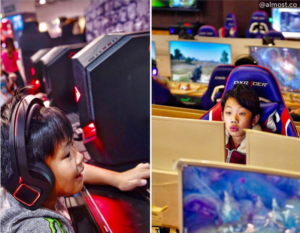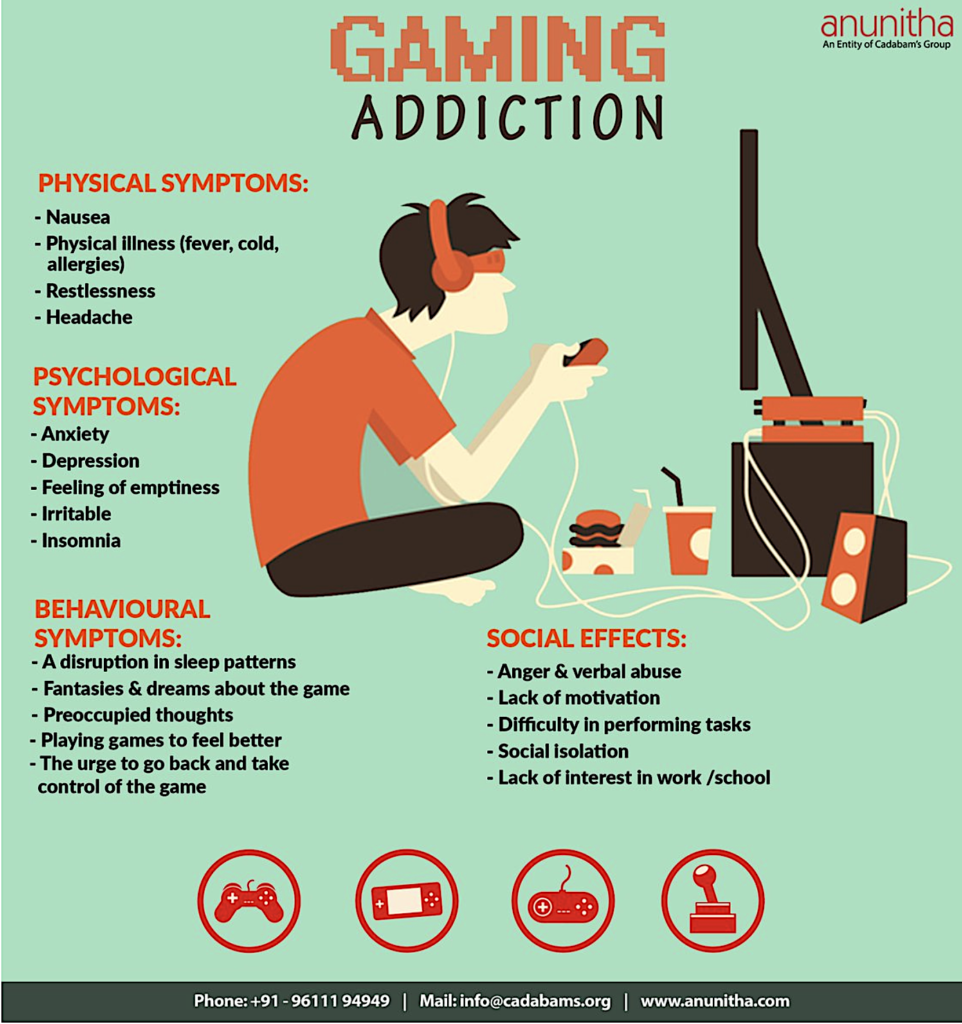
Today, video gaming has become an increasingly popular activity. In October 1958, American physicist William Higinbotham created what is thought to be the first video game. From that simple computer tennis game to today’s elaborate and extremely realistic video games, this industry has developed dramatically; it is now estimated at more than 250 billion Euros, according to a new report by Accenture, and an annual growth rate of 2.29% is predicted for the next five years.
Due to the Covid-19 pandemic, people have stayed at home for longer periods and that is one of the reasons why online gaming rapidly became one of the most popular activities during lockdown in the last two years. Besides the domestic use of video games and such similar entertainment, there is also the corporate activity in video gaming, e-sports, cloud gaming and online competitions that have all contributed to this industry’s growth and success. Today, there are international e-sports competitions with fabulous prizes and huge audiences.

Proof of the increasing popularity of gaming throughout the world is also the fact that large cable and streaming networks, as well as giant tech companies such as Netflix or Amazon, have all made their expansion into the gaming market a priority by acquiring video gaming companies.
Video games take their users to an imaginary world, excite their senses and capture their imagination. Elements that have contributed to their immense success are, of course, the modern technologies of virtual reality that sometimes make it hard to distinguish real life from virtual reality. With this success came the debates related to the consequences of this activity.
Some video games are designed to be educational. They teach and can even improve certain skills in children and teenagers, who are their principal users. Video games can change the brain regions responsible for attention and visuospatial skills and make them more efficient, as well as reducing the risk of developing dementia.

The Jimmy Fund supports Boston’s Dana-Farber Cancer Institute raising funds for adult and pediatric cancer care and research to improve the chances of survival for patients around the world © Dana-Farber
Over the past years, several pilot studies have shown some encouraging results concerning computer games especially designed to help children diagnosed with autism. These studies have demonstrated that some games improved certain abilities such as balance, attention, concentration and focus in these patients.
Furthermore, a new study recently conducted at Hospital de la Paz in Madrid, Spain, found that video games can help children overcome pain caused by cancer treatments and also help with their recovery.
During this study, doctors analysed pain levels in children going through chemotherapy and discovered that their suffering could be relieved with the help of some specific video games.

Ignacio Gonzales, Chief Medical Officer at MDoloris Medical Systems added : “They found out that due to these video games, they were able to reduce by half the amount of opioids that these children receive, as well as the total amount of opioid that they receive per day. [sic] So, it was a great success.” (Source: Euronews.com)
Many online games have helped develop children’s’ ability to solve problems, to think strategically and to prepare moves in surprising situations. In other words, they increase children’s cognitive skills. Also, in a world where the internet plays a major role and online activities are increasingly important, knowing how to navigate and use these modern devices at an early age could surely be an advantage for later on in life, even for a future profession. After all, the world is full of examples of young entrepreneurs becoming billionaires or launching highly successful IT-related start-ups. The last two years, during which people who were forced to distance themselves physically needed to be connected, have definitively proved that the internet is essential in the 21st century. It has to be admitted that playing video games with friends that couldn’t be met in person offered a small comfort to children during the Covid pandemic.
However, researchers have also shown that video games and excessive screen time can affect the quality of sleep, cause violent behaviour in some cases and bring about changes in the social habits of people abusing the use of video games. The implication is that these could be causing a ‘media addiction’ and a change in one’s behaviour, which may signal some even more serious problems. Thus, the urgent need to step in and take decisive measures and to limit the damage.
Today, there are useful and widely used applications that limit exposure and time spent in front of the computer screen, filter the choices or block access to specific content in terms of age, parental guidance and attitudes towards various subjects.

Evidently, there are two sides to the problem : the time spent in front of a screen and too much exposure to violent video games.
A study run by Ohio State University demonstrated that after exposing children to a violent game (with the use of guns and swords) for only twenty minutes, these children manifested an increased willingness to touch and even use real weapons. This is quite alarming, especially in the USA, where access to fire arms is fairly easy and where tragic shootings involving teenagers and even school children are regular occurrences.
It is precisely the high quality and realistic graphic depiction of reality in these modern games which worries researchers. They believe that at some point, the accurately replicated virtual reality on the screen may be mistaken for the real world.

China has recently imposed a new policy regarding the use of video games for people under eighteen years of age. From now on, young people will be allowed to play video games for no longer than three hours per week; one hour in the evening, from 8pm to 9pm, and only on Fridays, weekends and public national holidays. This rule took effect in early September 2021, but its benefits or consequences will probably be analysed later, over the next few years. The new rule places the responsibility of enforcing this policy on the video gaming industry. They must see that the time limits are not exceeded, while individual gamers will not be sanctioned for non-compliance to these new rules imposed by China’s National Press & Publication Administration (NPPA), the agency responsible for regulating video gaming activity in the country. On the world’s largest computer gaming market, where the Chinese government has studied and long worried about the effects of video games on young generations, such drastic measures have not surprised many. For years, specialists have stressed that excessive screen time and playing video games may cause eyesight problems, as well as physical and mental issues. State media reports have shown that 63% of Chinese minors play online games regularly, with about 13% playing more than two hours daily.
In fact, some steps towards reducing access to video gaming for minors were taken in China as early as 2017, with the initiative of Tencent Holdings to limit access for young users to its own highly popular video game ‘Honor of Kings’.
In 2019, new governmental regulations came into place, limiting playing time to one hour and a half per day, with a maximum of three hours on weekends. They also limited the amount of money that minors could spend on buying virtual items used while playing.

But in a country such as China, the 2021 ruling is far more restrictive since it affects about 268 million people (China’s under-18 population). This raised controversy and opposition to its implementation. Some argued that one is allowed to work from the age of sixteen but limited to playing video games with no restrictions until one is eighteen. Others questioned the real motives behind the new regulations and denounced the necessity to register with real names to log in to play. Despite that, many parents welcomed the state initiative, by emphasising that henceforth, their children’s time could be better spent by exercising outdoors or studying more.
However, some media experts claim that this new policy is in fact, an attempt by the Chinese government to gain even more control on people’s personal lives and activities. They argue that the state is actually trying to diminish the growing influence of technology in the lives of ordinary Chinese people, far from government influence and strict control. On the other hand, Chinese officials say that video gaming is highly addictive and call computer games ‘electronic drugs’.

Indeed, if we take a global look, screen time addiction seems to be a universal problem today. A quick search on the internet allows one to find answers to questions such as : ‘how do you digitally detox a child?’ or ‘how can I help my child with electronic addiction?’ Some answers are : ‘encourage sports and physical activity’, ‘talk to your child about what they enjoy most about video gaming and why they want to game regularly’. The internet is full of tips and advice on how to address this 21st century issue that is real and of concern. There is also a plan called ‘take 90 days off gaming’ available online which has inevitably led to a whole industry on how to efficiently detox after one has abused screen time. On Gamequitters.com, one can read that after quitting playing computer games, ‘for the first few days, you tend to have no energy and your mood sucks. You may get irritated easily, experience headaches and even dream about video games. The brain includes several distinct dopamine systems, one of which plays a major role in reward-motivated behaviour’.
It is scientifically proven that gaming causes rapid dopamine release in gamers’ nervous systems. This explains the fact that while playing video games, the type of nervous stimulation one receives is so much different than what one might experience while doing other types of activities.
But research has also shown that rapid dopamine release can be dangerous. One cannot become addicted to dopamine but it plays a major role in motivating people to seek pleasurable experiences all the time, capable to constantly keep their dopamine level high. Dopamine helps the brain sustain attention and focus and is self-reinforcing. Basically, the more interest one shows, the more dopamine is released into the system.

Significant clusters of the cortical thickness correlation with hours of video gaming per week in the left dorsolateral prefrontal cortex (DLPFC) and left frontal eye fields (FEF) (multiple comparison corrected © plos.org
Dopamine also increases tolerance over time, so that one will need more and more in order to feel the same effects. The more dopamine the brain releases, the more pleasure one will feel and the greater the need for longer playing times. Every game’s ability to keep one close to the screen for yet another round is already documented and it ensures the game’s success and high revenues for its creators.
Do these symptoms sound vaguely familiar, or alarming ? It has to be admitted that they seem terribly similar to drug addiction.
The American Academy of Paediatrics suggests that time allowed for video gaming should be no longer than sixty minutes per day on weekdays and no more than two hours on weekends. Healthy alternatives to increasing dopamine levels include activities such as listening to music, meditating , playing outdoor sports and adequate sleep.

A few weeks ago, an event made the news headlines all over the world. A Spanish teenager who had been playing a popular video game (with 350 million registered accounts worldwide) for more than 20 hours per day, went through a hospitalised digital detox. ‘Doctors noted how the 15 year old boy stopped sleeping properly and even attending to basic personal hygiene, so he could play the game. He was absent from school and paid little attention to his studies’ (Source: Theindependent.co.uk). The website also cited Dr. Matias Real-Lopez who conducted the study and detox operations : “The addiction became similar to addiction to heroin, cocaine and other chemical substances”. The teenager gradually isolated himself socially and his school performance rapidly deteriorated. These alarming signs prompted the parents to seek help.
This was the first official case of ‘video games addiction’ treated in a hospital, where the teenager received treatment for two months. His playing times have been limited and he was encouraged and helped to set new healthier daily routines. This event occurred in 2019 but the study was initially published in 2021 in a psychiatric journal.
The general opinion is that video games are not dangerous in themselves, but that there is a high risk of addiction when they are played for excessively long periods. Dr. Real-Lopez’s advice for parents is to establish “clear and well defined limits” for the use and access to screen time.
Beyond all the discussions, the controversies and financial interests related to video gaming, there is one clear conclusion. No matter how good, useful or harmful some video games may be, users and especially children should not substitute them to real life and to true human interaction. They must not misuse them and must not mistake the world of video gaming for reality.
Life is not a game, live it responsibly!

